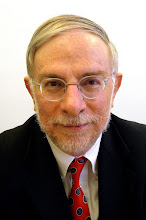domingo, 29 de dezembro de 2013
terça-feira, 24 de dezembro de 2013
domingo, 22 de dezembro de 2013
terça-feira, 10 de dezembro de 2013
quinta-feira, 5 de dezembro de 2013
quarta-feira, 4 de dezembro de 2013
terça-feira, 3 de dezembro de 2013
segunda-feira, 2 de dezembro de 2013
domingo, 1 de dezembro de 2013
domingo, 24 de novembro de 2013
quinta-feira, 21 de novembro de 2013
domingo, 17 de novembro de 2013
quarta-feira, 6 de novembro de 2013
segunda-feira, 4 de novembro de 2013
domingo, 3 de novembro de 2013
domingo, 27 de outubro de 2013
Maurice M Mizrahi
Jew from Egypt, like me. Many contributions to the history of Jews from Egypt, and insightful comments on the weekly Torah portion:
My Journey out of Egypt
My Journey out of Egypt
domingo, 20 de outubro de 2013
sábado, 19 de outubro de 2013
domingo, 6 de outubro de 2013
segunda-feira, 30 de setembro de 2013
sábado, 28 de setembro de 2013
sexta-feira, 27 de setembro de 2013
quinta-feira, 12 de setembro de 2013
sábado, 24 de agosto de 2013
Melhor elogio que este, impossível
Do Edu, sobre itSMF: Bom parabéns pra você, enquanto esteve contigo prosperou muito. Puta bom trabalho teu.
sexta-feira, 23 de agosto de 2013
sábado, 10 de agosto de 2013
segunda-feira, 5 de agosto de 2013
What makes Jews so smart?
Why did Jews become a people of merchants, bankers, scholars and doctors? A new book offers a bold, original answer to this great historical question.
What makes Jews so smart?
Why did Jews become a people of merchants, bankers, scholars and doctors? A new book offers a bold, original answer to this great historical question.
By Manuel Trajtenberg | Aug. 2, 2013 | 6:04 PM |
“The Chosen Few: How Education Shaped Jewish History, 70-1492,” by Maristella Botticini and Zvi Eckstein, Princeton University Press, 344 pages, $34.95
The intellectual success of the Jews in the modern era and their prominence in occupations in the realms of commerce, medicine and finance since the Middle Ages are among the most challenging mysteries in the long history of the Jewish people.
Zvi Eckstein and Maristella Botticini present in their book “The Chosen Few,” recently translated into Hebrew by Inga Michaeli ?(Tel Aviv University Press?), a revolutionary thesis about the development of the Jews’ relative advantage in occupations that necessitated literacy and education: After the destruction of the Second Temple in Jerusalem in 70 C.E., the survival of the Jewish religion demanded that every Jew learn to read and write, and acquire knowledge-acquisition skills; whoever was unable to do so - became assimilated. Thus, out of necessity, the Jews found themselves possessed with skills that proved critical for their economic development.
From the time of the Babylonian exile, in the sixth century B.C.E. until the destruction of the Second Temple, Judaism rested on two main pillars: the rituals carried out at the Temple and the reading of the written Torah. A small elite of priests headed the Temple, and Torah study was also the province of a very few. The Roman conquest of Jerusalem and destruction of the Temple at once switched Judaism’s “center of gravity” from the priesthood in Jerusalem to a growing community of rabbis and scholars - that is, from beit hamikdash to beit hamidrash ?(from the Temple to the religious study hall?).
In the absence of an actual tangible center of ritual, Judaism’s survival then became contingent upon its ability to create an alternative that could adapt to the tough new conditions. The reading and studying of the Torah by every Jewish man - this constituted the foundation of the Jewish people’s existence from that point on. To ensure continuity, every man was tasked with the duty of imbuing his sons from a young age with the ability to read and write. That was indeed a revolutionary development in a world in which a majority of whose inhabitants were illiterate.
All this is well known, but what is less clear relates to the unforeseen consequences of this dramatic development, both for Judaism and for the mutual relations between its adherents and their surroundings. Instilling literacy and teaching Torah entailed high expenditure ?(the book contains relevant and interesting data and estimates of such?), but at the same time, in the first centuries after the Second Temple’s destruction, most Jews were still engaged in farming, and thus lived in poverty and hardship. How could a simple Jewish farmer in some Galilee village in 200 C.E. bear the cost of educating his sons? And what did he get out of it?
This was a central existential dilemma that burdened Jews in that period: to bear the financial burden of education and thereby cleave to Judaism, or to benefit from the immediate saving of such expenditures, and thereby forgo Judaism. Simple economic logic predicts that such a fateful decision would be made according to each person’s relative advantage and preferences. Obviously, Jews whose affinity for their religion was weak to begin with, or those who had difficulty learning, would be tempted to choose less difficult alternatives.
In other words, common sense says that part of the Jewish people would assimilate, and therefore the population would gradually decrease. And indeed, in the time of the Talmud ?(the third through sixth centuries C.E.?), two distinct patterns emerged: On the one hand, heightened literacy among the Jewish community, whose economy was largely agriculturally based. And, on the other hand, a slow but evident process of religious conversion ?(primarily to Christianity?), and in its wake a dramatic shrinking of the Jewish population - from approximately 5.5 million circa 65 C.E. to just 1.2 million in about 650. Epidemics and massacres also contributed to this, but these factors account at most for only about half of the steep population decline.
Encounter with Islam
In the mid-seventh century, there was an historic encounter between the Jews and then-ascending Islam. That encounter was destined to strengthen the literacy revolution that had taken root centuries earlier among the Jews, and to channel it in unexpected directions. The immense Muslim empire that arose after the prophet Mohammed’s death sprawled from the Iberian peninsula all the way to India and China. Within it was inculcated not only the religion of Islam but also a dominant language, Arabic, new institutions and laws. The empire’s growth led to the development of many new industries, commerce expanded and new cities were erected.
This tremendous wave of globalization and urbanization sparked increased demand for educated professionals with intellectual skills. The effect these changes had on the Jews was dramatic: Between 750 and 900, nearly all the Jews in Mesopotamia and Persia - some 75 percent of world Jewry at the time - left farming, moved to the big cities of the Abbasid Caliphate, and began to specialize in an array of literacy- and education-based professions, which were much more lucrative than farming. This change in the employment structure of the Jewish people occurred even before any legal restrictions were imposed on them with regard to land ownership.
In their book, Eckstein and Botticini therefore come up with an original and bold answer to the great historical question of why the Jews became a people of merchants, tradesmen, grocers, bankers, scholars and doctors. Not because of injunctions or necessity, they contend, but rather due to a clear, relative advantage that they developed over centuries as a result of a traumatic event - destruction of the Second Temple - that led to an effort to the endowment of literacy among every Jew. That process prepared the Jews to take on key roles within the awakening economy of the Muslim empire, since their skills were well suited to the needs of a burgeoning urban and global world.
The Jews went out in search, metaphorically, of the America of those days, immigrating to locales where their skills made them highly sought-after, such as Yemen, Syria, Egypt and the Maghreb, and later on to Western Europe. Belonging to a collective with a strong identity enabled them to maintain inter-regional ties regardless of where they resided, and also to enforce contractual agreements from afar - something that was very helpful in commerce.
This can also explain the dizzying success of the Jews in professions related to the credit and financial markets. In the 12th-13th centuries, moneylending was already a typical Jewish occupation in England, France and Germany, and also their main profession in Spain, Portugal, Italy and other Western European lands.
The explanation put forward here contradicts the prevailing view that the Jews of Europe in the Middle Ages specialized in moneylending because they were barred from membership in craftsmen’s guilds, and because Muslims and Christians were forbidden to lend money with interest. “The Chosen Few” argues that the Jews in Western Europe willingly specialized in that profession and in banking because they had the right skills and conditions: the ability to read and write, mathematical prowess and institutional means to enforce contracts; capital that was initially amassed from their work as merchants and craftsmen; and unprecedented networks that enabled them to communicate with each other throughout the Diaspora.
The third historic event that had a profound effect on Judaism was the Mongol invasion of the Middle East, something that surprisingly is not emphasized in the least in Jewish history books. The Mongols invaded Persia and Mesopotamia in 1219; the conquest reached its apex with the sacking of Baghdad in 1258. Thus collapsed the urban and commercial economy of the Abbasid Caliphate, and the economy of Mesopotamia and Persia regressed to the agricultural stage that had characterized it in the past. Consequently, a large proportion of the Jews in Persia, Mesopotamia, and even Egypt and Syria, were forced to abandon Judaism and convert. The religious norms, and especially that which called for educating one’s sons, once again became an intolerably expensive burden, and quite a few Jews converted to Islam.
As a result of this, the world’s Jewish population shrank by a substantial rate and reached an unprecedented low at the end of the 15th century. In other words, history proves that the same mechanism presented here could operate in the opposite direction, too, in view of an external shock - in this case, the Mongol conquest.
Eckstein and Botticini display the power of combining progressive economic thinking with in-depth, comprehensive historical research. This is a trailblazing, original, illuminating and horizon-broadening book, one that might alter our perception of ourselves and our place on history’s stage. It may also help us divine what can be expected from the changes occurring in the Jewish world today.
Prof. Manuel Trajtenberg is an economist. He headed the committee that was appointed following the wave of social protest in 2011.
sábado, 27 de julho de 2013
sexta-feira, 26 de julho de 2013
domingo, 21 de julho de 2013
domingo, 14 de julho de 2013
sexta-feira, 12 de julho de 2013
domingo, 7 de julho de 2013
sábado, 6 de julho de 2013
domingo, 23 de junho de 2013
sábado, 22 de junho de 2013
sábado, 1 de junho de 2013
segunda-feira, 27 de maio de 2013
quinta-feira, 16 de maio de 2013
terça-feira, 14 de maio de 2013
Shavuot: the Book of Ruth
Sex and the Moabite girl: good review of the book of Ruth and related biblical stories. See also the magnificent Victor Hugo poem, Booz Endormi.
domingo, 5 de maio de 2013
sábado, 4 de maio de 2013
segunda-feira, 29 de abril de 2013
sábado, 27 de abril de 2013
sexta-feira, 26 de abril de 2013
sábado, 13 de abril de 2013
segunda-feira, 8 de abril de 2013
segunda-feira, 25 de março de 2013
sábado, 23 de março de 2013
domingo, 17 de março de 2013
terça-feira, 12 de março de 2013
segunda-feira, 11 de março de 2013
domingo, 10 de março de 2013
sexta-feira, 8 de março de 2013
segunda-feira, 4 de março de 2013
quinta-feira, 28 de fevereiro de 2013
Uma frase da lista do Ari (obrigado Ari)
O próprio viver é morrer, porque não temos um dia a mais
na nossa vida que não tenhamos, nisso, um dia a menos nela.
(Fernando Pessoa)
sábado, 16 de fevereiro de 2013
quarta-feira, 13 de fevereiro de 2013
terça-feira, 12 de fevereiro de 2013
domingo, 10 de fevereiro de 2013
sábado, 9 de fevereiro de 2013
sexta-feira, 8 de fevereiro de 2013
quinta-feira, 7 de fevereiro de 2013
quarta-feira, 6 de fevereiro de 2013
2x10^57,885,161-1
GIMPS Project Discovers Largest Known Prime Number, 257,885,161-1
ORLANDO, Florida -- On January 25th at 23:30:26 UTC, the largest known prime number, 257,885,161-1, was discovered on Great Internet Mersenne Prime Search (GIMPS) volunteer Curtis Cooper's computer. The new prime number, 2 multiplied by itself 57,885,161 times, less one, has 17,425,170 digits. With 360,000 CPUs peaking at 150 trillion calculations per second, 17th-year GIMPS is the longest continuously-running global "grassroots supercomputing"[1] project in Internet history.
domingo, 3 de fevereiro de 2013
sábado, 2 de fevereiro de 2013
Are Books All We Have Left?
Jews and Words, Amos Oz and Fania Oz-Salzberger and the Posen Library of Jewish Culture and Civilization: Jewishness as a Culture
Listo decálogo para mejorar educación
Notícia em diário de Medellin... a seguir como exemplo (ADN, 22 de Enero de 2013)
sexta-feira, 18 de janeiro de 2013
1.100 millones de descreídos
1.100.000.000 não tem religião. E apesar disso os fanatismos crescem...
Será que contaram os chineses errado?
sábado, 12 de janeiro de 2013
Assinar:
Comentários (Atom)





























